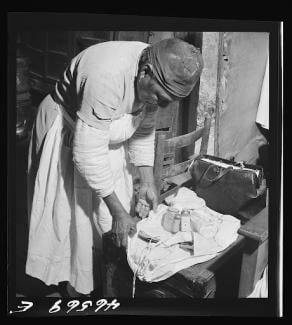
Black women in the U.S. have always had to go through Hell when it comes to reproductive health.
The Supreme Court’s decision to overturn Roe v. Wade, the legal ruling protecting reproductive freedom, is only the latest incident in a long history of white supremacy controlling Black women’s bodies.
Black women’s reproductive health got much worse after enslavement ended, because white men got real interested in the reproductive outcomes of Black women.
They could no longer force Black women to “breed,” but more Black births meant more Black laborers, which meant more money. So what did they do?
Until Reconstruction, older Black women, often known as “Grand Midwives,” were responsible for the reproductive health of Black women. Grand Midwives can be traced to West Africa, where childbirth was a spiritual experience. From family planning, to childbirth, to abortion if it was desired, Black women helped Black women.
Then white men stepped in.
Healthcare was taken over by white male doctors, and Grand Midwives were essentially outlawed by the 1921 Sheppard-Towner Act. Today Black women have terrible reproductive health outcomes.
So how can we protect Black women now that Roe v. Wade could be overturned?
We must continue to fight against the racism, sexism, and discrimination that still treats Black women’s bodies like property to be controlled! Our freedom is never guaranteed – we have plenty of work to do.